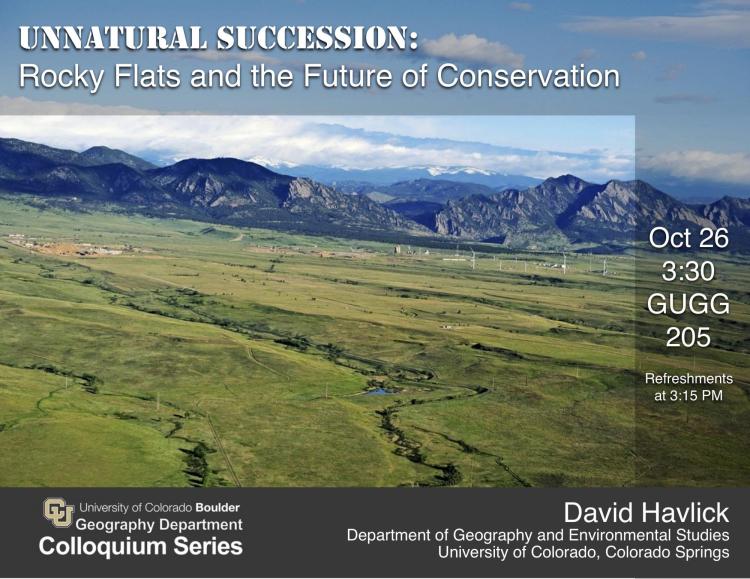For four decades, Colorado’s Rocky Flats plant served as the core facility producing plutonium triggers for the United States’ nuclear arsenal. Military production halted in 1992 and fifteen years later the site was designated a national wildlife refuge. Despite a $7 billion dollar cleanup, Rocky Flats remains controversial both for its material condition and for the narratives that describe this place. The U.S. Fish and Wildlife opened Rocky Flats to the visiting public in September 2018, but with plutonium still lingering in soils at the refuge, nearby school districts have banned field trips to the site and local health officials have raised concerns about public safety. In this talk, I examine Rocky Flats, its conflicting narratives of conservation and contamination, and the broader contexts of military-to-wildlife land use changes. In these post-military but still-militarized settings, the negotiations between history, ecology, and meaning substantially impact how we come to understand such sites’ legacies of contamination and cleanup.
David Havlick
Department of Geography and Environmental Studies
University of Colorado, Colorado Springs

